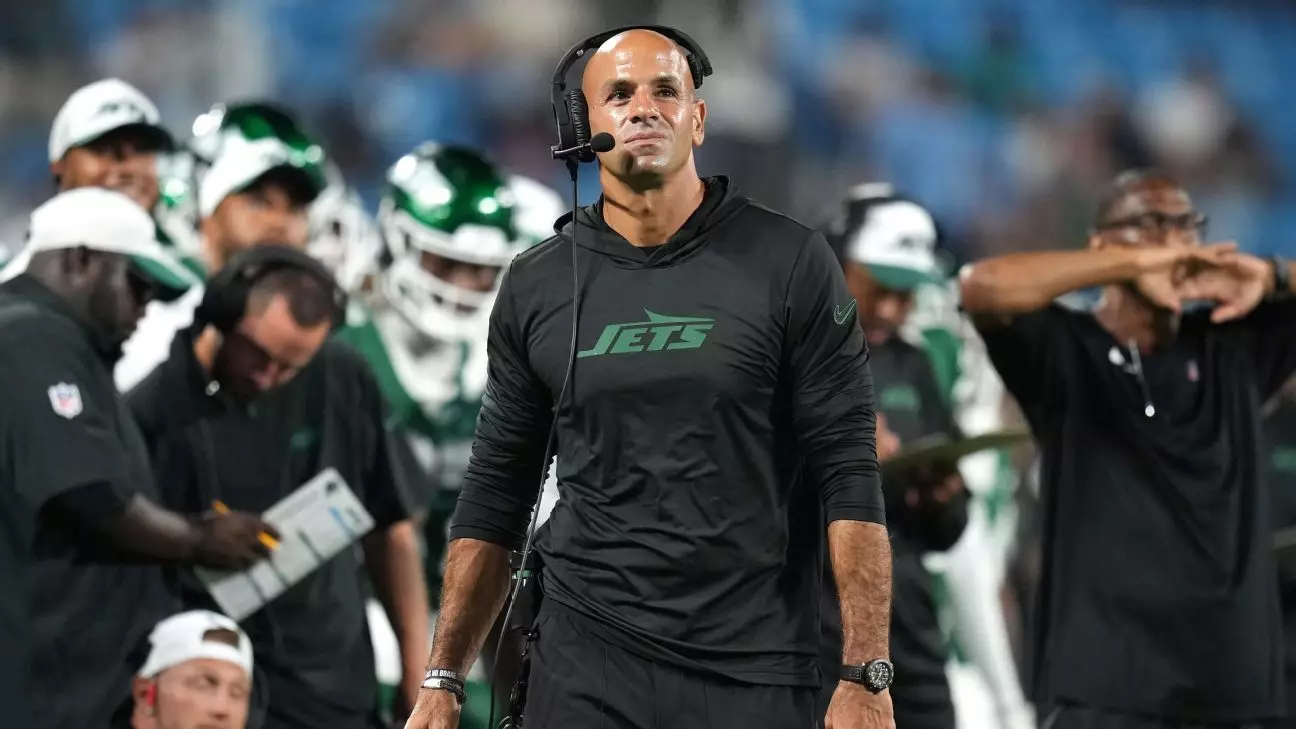The New York Jets have signaled a major shift in their coaching strategy by parting ways with Robert Saleh after a disappointing 2-3 start to the season. Owner Woody Johnson’s announcement reflects the mounting pressures that come with high expectations and the pursuit of success in the NFL. With defensive coordinator Jeff Ulbrich stepping into the interim role, the Jets are clearly hoping to turn things around quickly. Saleh’s dismissal raises significant questions about the current trajectory of the team and the underlying issues that led to this decision.
When Saleh was appointed as the Jets’ head coach in 2021, there was palpable optimism surrounding the team. With his defensive prowess and leadership style, fans and management alike hoped Saleh would rejuvenate a franchise that had endured prolonged mediocrity. Expectations peaked after last season’s 7-10 finish, during which Johnson voiced his dissatisfaction and demanded substantial improvements in 2024.
However, the 2024 season has not started as anticipated. The Jets’ struggles on offense, a recurring theme in Saleh’s tenure, have raised alarms among fans and analysts. While Saleh was known for building a formidable defense, the inability to achieve offensive consistency—particularly through the challenges of quarterback instability—jeopardized his standing. This year, the reappearance of quarterback Aaron Rodgers from an Achilles injury seemed promising, yet the resultant performance fell short, leading Johnson to opt for a change.
The decision to fire Saleh also highlights questions concerning leadership dynamics within the Jets organization. Saleh and Rodgers claimed to share a strong relationship, suggesting collaborative efforts to foster a productive environment. Yet, the results on the field are ultimately what matter most, and the perceived discord, whether real or manufactured by external pressures, was concerning.
Rodgers and Saleh’s camaraderie might have been overshadowed by a struggling offense, causing fans to speculate about the efficacy of their communication and strategic alignment. An effective partnership between a head coach and his star quarterback is essential, and despite their claims, the outcome of their collaboration painted a different picture, minding the mounting scrutiny directed at both.
Saleh’s firing is historically significant. Johnson’s decision marks the first time in 25 years that he has dismissed a head coach midseason, indicating the severity of the current predicament. Additionally, Saleh’s dismissal post a game in London places him among a small group of coaches who have faced similar fates after international outings. This historical context emphasizes the urgency the Jets felt in making such a drastic decision.
This change raises implications not just for the current season but for the future direction of the Jets. With Ulbrich stepping in, fans will be keenly observing whether his coaching style can elicit better performances from the existing roster. Importantly, Ulbrich inherits a team laden with talent; thus, the expectation is for him to maximize its potential immediately, a tall order given the circumstances. The transitional period could either lead to a revitalization of the team or further insights into the systemic issues plaguing the Jets.
Looking forward, the Jets face a challenging road ahead. The transition from Saleh to Ulbrich requires not just a change in coaching style but potentially a redirection of team philosophy. Questions remain regarding the long-term strategy for addressing the quarterback position, a cornerstone of any successful NFL team. With multiple quarterbacks cycling through in Saleh’s four seasons at the helm, finding stability is paramount for the Jets’ future success.
Beyond immediate on-field performances, the Jets need to build a cohesive organization capable of translating talent into results. Saleh’s tenure has yielded wisdom about the fine line between strong defensive fundamentals and offensive efficacy—lessons from which both Ulbrich and the management should draw as they forge ahead in this evolving narrative.
The firing of Robert Saleh encapsulates the rich complexities of NFL coaching dynamics and team expectations. As the Jets navigate this transition with Jeff Ulbrich, the focus turns towards harnessing the potential within a talented roster while addressing the structural challenges that have long afflicted the franchise. Will this change foster improvement, or will it merely highlight deeper issues that necessitate further scrutiny? Only time will tell, but one thing is for certain: the journey ahead for the Jets is crucial, both for immediate success and long-term viability in the competitive landscape of the NFL.


Leave a Reply